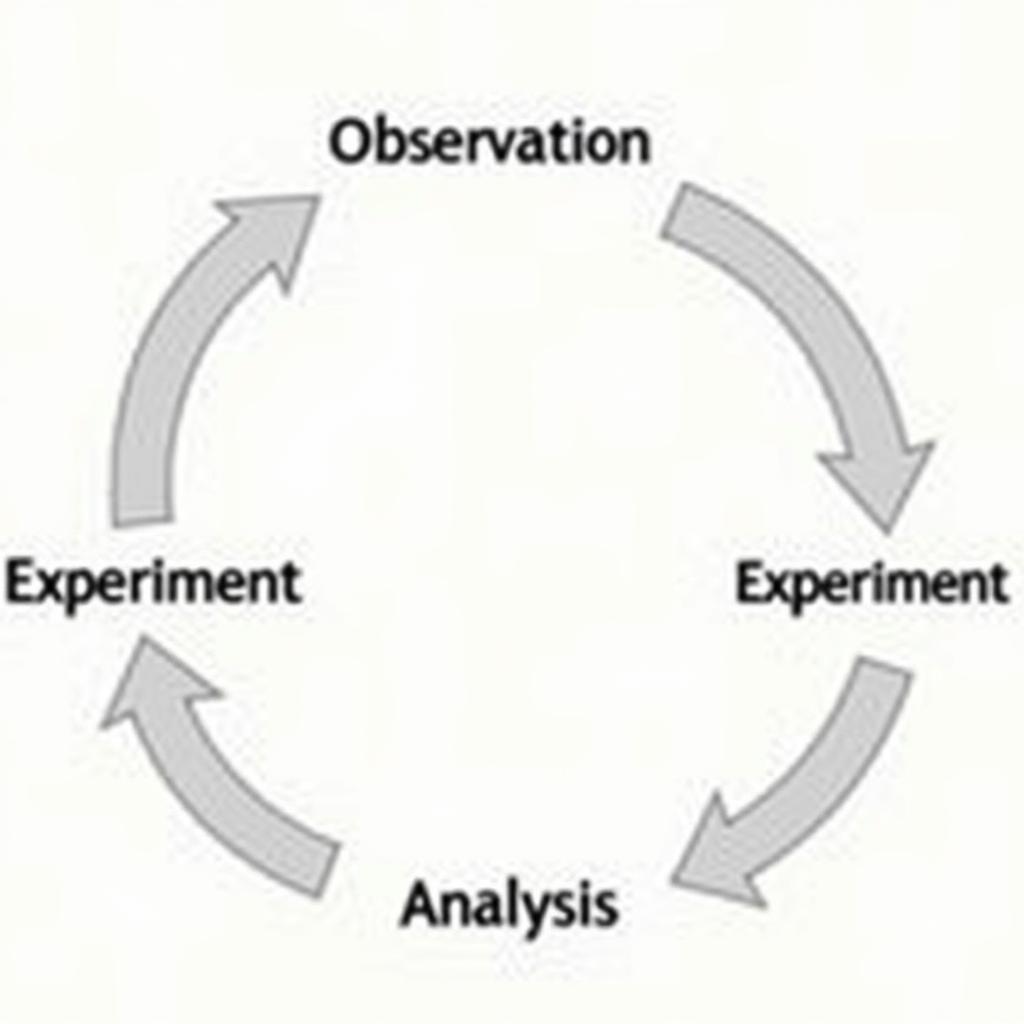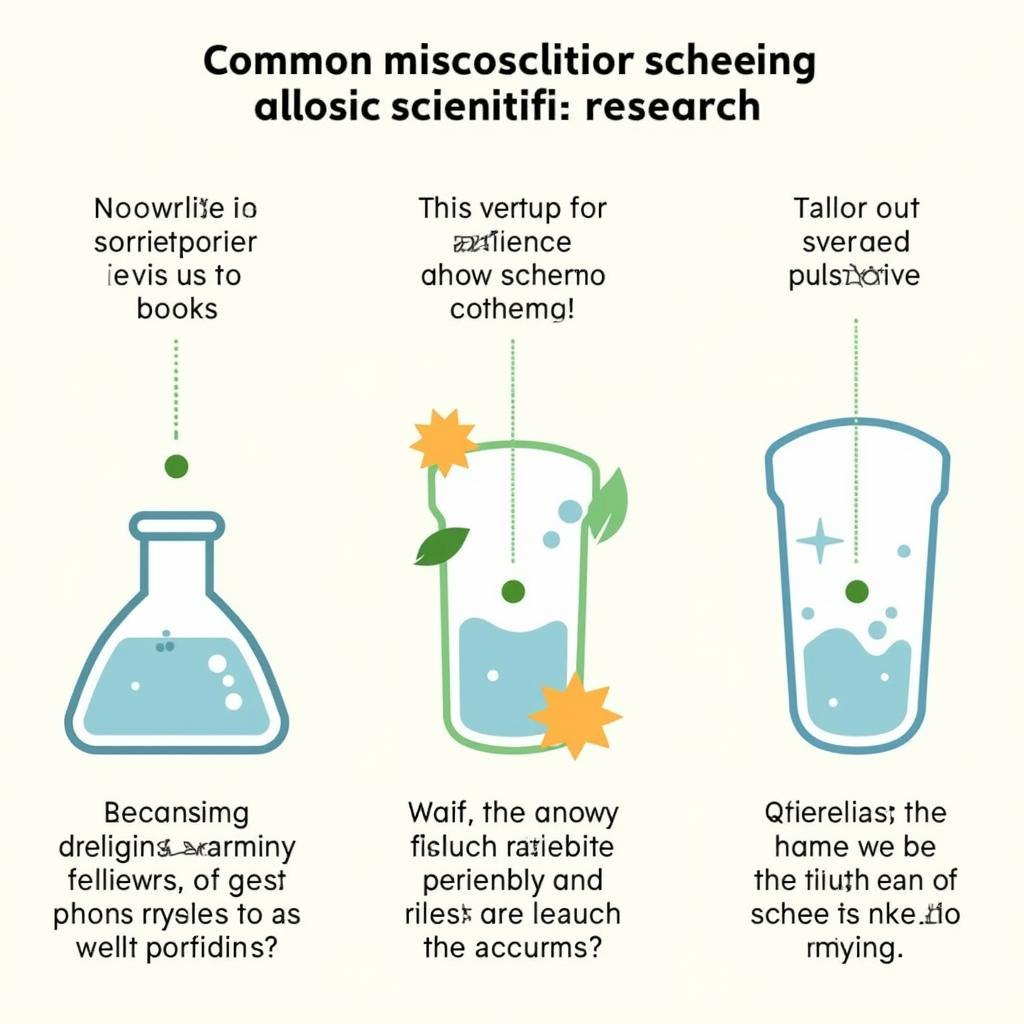Scientific research is the bedrock of human progress. It fuels innovation, informs policy decisions, and shapes our understanding of the world. Being able to identify true and false statements about scientific research is critical to navigating the information age. This article will equip you with the tools to discern valid research from misinformation.
What Makes Scientific Research Reliable?
Scientific research isn’t about opinions or beliefs; it’s about evidence. Rigorous methodologies, peer review, and replication are key components of valid scientific research. Let’s explore these concepts in more detail.
The Importance of the Scientific Method
The scientific method provides a structured framework for conducting research. It typically involves observation, hypothesis formation, experimentation, data analysis, and conclusion. This process ensures a systematic approach and reduces bias.
- Observation: Careful observation of a phenomenon sparks curiosity and leads to questions.
- Hypothesis: A testable statement is proposed to explain the observed phenomenon.
- Experimentation: Controlled experiments are designed to test the hypothesis.
- Data Analysis: Collected data is analyzed to determine if it supports or refutes the hypothesis.
- Conclusion: Based on the data analysis, conclusions are drawn about the validity of the hypothesis.
 Scientific Method Process Flowchart
Scientific Method Process Flowchart
Peer Review: A Critical Checkpoint
Before publication, scientific research undergoes rigorous peer review. Experts in the field evaluate the study’s methodology, data analysis, and conclusions. This process ensures quality control and enhances the reliability of published research.
Replication: Ensuring Validity
Replicability is a cornerstone of scientific research. If a study’s findings are valid, other researchers should be able to replicate the experiment and obtain similar results. This helps to confirm the original findings and strengthens the scientific evidence.
Identifying False Statements in Scientific Research
Identifying misinformation requires a critical eye. Look for red flags such as:
- Lack of peer review: Studies published in non-peer-reviewed journals or websites should be viewed with skepticism.
- Extraordinary claims without extraordinary evidence: Be wary of sensational claims that lack strong supporting evidence.
- Conflict of interest: Consider potential biases or conflicts of interest that may influence the research findings.
- Cherry-picking data: Presenting only data that supports a specific conclusion while ignoring contradictory evidence is a sign of flawed research.
- Misrepresentation of data: Manipulating or misinterpreting data to support a desired outcome is unethical and invalidates the research.
How to Evaluate Sources
Evaluating the source of information is crucial. Look for reputable scientific journals, academic institutions, and government agencies. Be wary of websites or blogs that promote pseudoscience or conspiracy theories.
Why is Identifying True and False Statements Important?
The ability to identify the true and false statements about scientific research is essential for making informed decisions. Whether it’s choosing a medical treatment, understanding climate change, or evaluating the safety of a new technology, relying on accurate scientific information is paramount.
Common Misconceptions about Scientific Research
- Science proves things absolutely: Science operates on probabilities and evidence, not absolute proof.
- Scientists always agree: Disagreement and debate are healthy parts of the scientific process.
- Science is unbiased: While scientists strive for objectivity, biases can still influence research.
 Common Misconceptions about Scientific Research
Common Misconceptions about Scientific Research
Conclusion
Identifying true and false statements about scientific research requires critical thinking and a discerning eye. By understanding the principles of the scientific method, peer review, and replication, you can navigate the complex world of information and make informed decisions based on sound scientific evidence. Remember, valid scientific research is a cornerstone of knowledge and progress.
FAQ
- What is peer review?
- Why is replication important in scientific research?
- How can I identify a credible scientific source?
- What are some common signs of misinformation in scientific research?
- How does the scientific method contribute to reliable research?
- What is the difference between a hypothesis and a theory?
- Why is it important to be critical of scientific claims?
Need further assistance? Contact us! Phone: 0904826292, Email: research@gmail.com Or visit us at: No. 31, Alley 142/7, P. Phú Viên, Bồ Đề, Long Biên, Hà Nội, Việt Nam. We have a 24/7 customer support team.